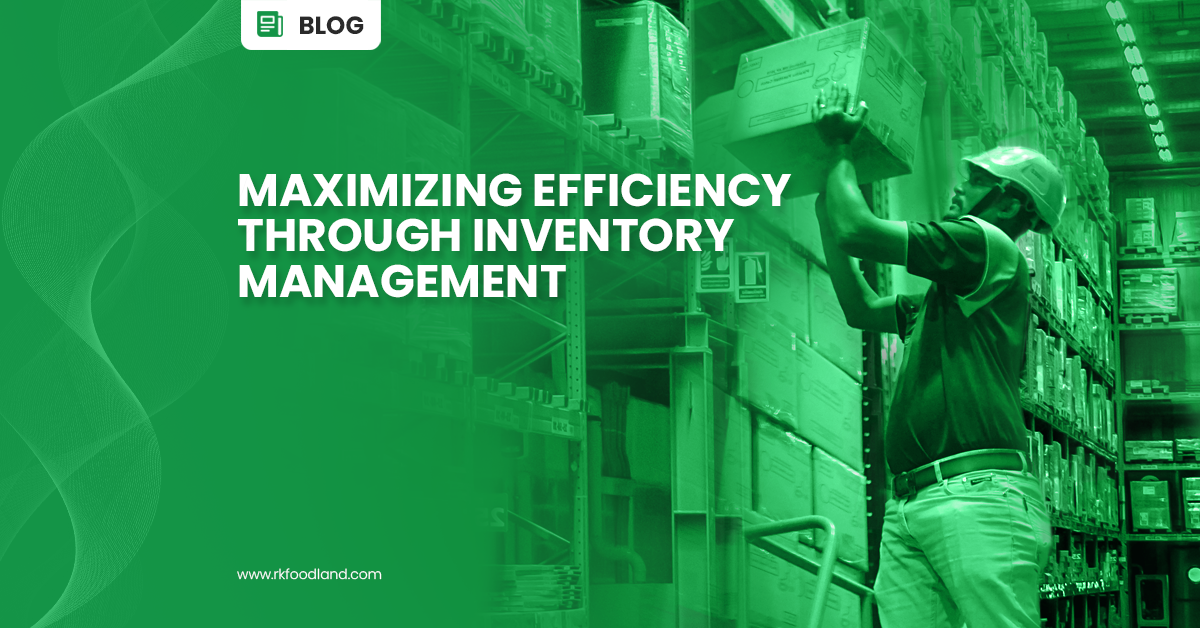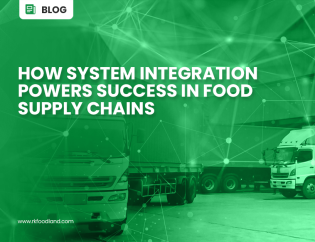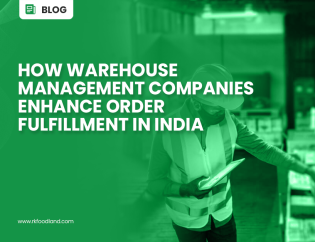
[Avg. Read Time < 4 mins]
Consider a chess game, each piece, from the pawn to the queen, possesses a unique role and movement. Similarly, inventory management in the food industry unfolds as a strategic game, where various elements—from sourcing to sales—manoeuvre across the supply chain’s board. Every move, whether optimizing shelf-life or enhancing transportation strategies, is meticulously calculated, safeguarding the king of the board—customer satisfaction. In this nuanced game, a well-thought-out strategy becomes the linchpin, essential for navigating challenges, orchestrating effective decisions, and ultimately checkmating complexities to unveil operational success. In this blog, we illuminate the pivotal aspects of balancing inventory in the food industry, unravelling the transformative pathways of optimized inventory turnover, and unveiling how RK Foodland’s expertise enhances the mastery of inventory management.
The Art of Balancing Inventory in the Food Industry
In 2020, the staggering cost of inventory distortion reached US$1.8 trillion, a daunting figure that underscores the criticality of precise inventory management in the food industry, particularly within Food Service and FMCG sectors. Despite such significant losses, it’s startling that 43% of small businesses do not actively manage their inventory, a negligence that precipitates a cascade of challenges such as augmented waste, escalated holding costs, and the consequential loss of sales due to stockouts or obsolete products. Approximately 34% of businesses have encountered situations where they have unintentionally sold a product that was unavailable in their inventory, resulting in delayed order shipments. Navigating through these complexities involves a strategic orchestration of various elements: optimizing the shelf-life of products in harmony with fluctuating consumer demands and seasonal availabilities; managing an array of ingredients across diverse units and components with the aid of sophisticated inventory software; and ensuring rigorous traceability protocols to mitigate contamination risks and uphold food safety standards. The industry also contends with the intricacies of transportation, where the product integrity is paramount, necessitating impeccable planning to navigate the sensitivities of time and temperature. In this multifaceted arena, inventory management stands as a crucial conductor, seamlessly aligning various aspects to minimize waste, optimize costs, and ensure the consistent delivery of quality and safety in consumer products.
Enhancing Inventory Management with RK Foodland’s Expertise
Navigating the complexities of inventory management in the food industry is a continuous journey of enhancement and adaptation. It begins with the crafting of tailored solutions that resonate with the unique needs of each business, fostering improved inventory turnover and supply chain strategies. In this journey, the optimization of supply networks emerges as a cornerstone, streamlining transportation, reducing lead times, and enhancing the overall fluidity and efficiency of the supply chain. Harnessing the power of technology and data analytics revolutionizes inventory planning and decision-making for small businesses, yet only 17% have embraced inventory tracking software to navigate their demand forecasting with precision and responsiveness. RK Foodland partners with businesses on this transformative journey, infusing each step with a wealth of institutional knowledge and expertise. Our warehousing solutions act as a supportive backdrop, enhancing the existing frameworks of inventory management. Our approach to network optimization breathes efficiency into logistics, nurturing a more resilient and agile supply chain. With a commitment to continuous improvement and adaptability, RK Foodland’s processes and solutions weave into the fabric of business operations, facilitating a culture of ongoing optimization, readiness, and strategic foresight in navigating the ever-evolving landscapes of inventory management in the food industry.
Transforming Fortunes through Optimized Inventory Turnover
Inventory management is a complex integration of various organizational functions, each contributing uniquely to the overall operation. It’s like a tapestry, where each thread, from sourcing to customer service, adds to the design and functionality.
Sourcing and Manufacturing
- Sourcing focuses on cost-effectiveness, ensuring that materials are acquired economically.
- Manufacturing emphasizes having enough materials to maintain a consistent production process.
Distribution and Customer Service
- Distribution involves strategic replenishments to maintain an optimal stock level.
- Customer service aims to meet consumer demands for freshness and variety in products.
Finance, Sales, and Marketing
- Finance focuses on optimizing inventory turns to ensure economic efficiency.
- Sales and marketing aim to present the available inventory attractively to engage customers.
To master the complexities of inventory management, businesses must embrace a holistic approach, integrating various strategies and objectives through collaborative planning and data-driven decision-making. This approach, enriched by customer-centricity and continuous improvement, ensures businesses reduce waste, improve inventory turnover by as much as 25%, and increase order accuracy to 98%. Key Performance Indicators (KPIs), such as inventory turnover and order accuracy, are essential navigational tools in this journey, guiding strategic refinements to meet organizational objectives effectively. The role of supply chain partners is pivotal in this ecosystem, ensuring consistent and accurate monitoring of KPIs, thereby bolstering the robustness and resilience of inventory strategies. Their collaborative involvement amplifies the reliability of data and the efficacy of inventory management practices, orchestrating a harmonized symphony of operational excellence and success.
In the strategic game of inventory management, mastering the moves and planning are key to achieving success. With the expertise of RK Foodland, businesses are empowered with tailored strategies and innovative solutions, enhancing their gameplay to navigate the complexities of the food industry effectively. As we conclude this exploration, the pathway to optimized inventory turnover and operational excellence is clearer, inviting businesses to make their next move with confidence and precision. Ready to enhance your inventory management strategy?
Connect with an RK Foodland expert today, and let us guide your moves towards achieving a winning position in the competitive arena of the food industry.
Related Content | Foodland’s Resources
- The Vital Role of Inventory Management in Supply Chain Management: Unlocking Efficiency and Profitability
- Steps To Successful Supply Chain Inventory Management
- Inventory Management Best Practices Through Supply Chain Finance Strategies









